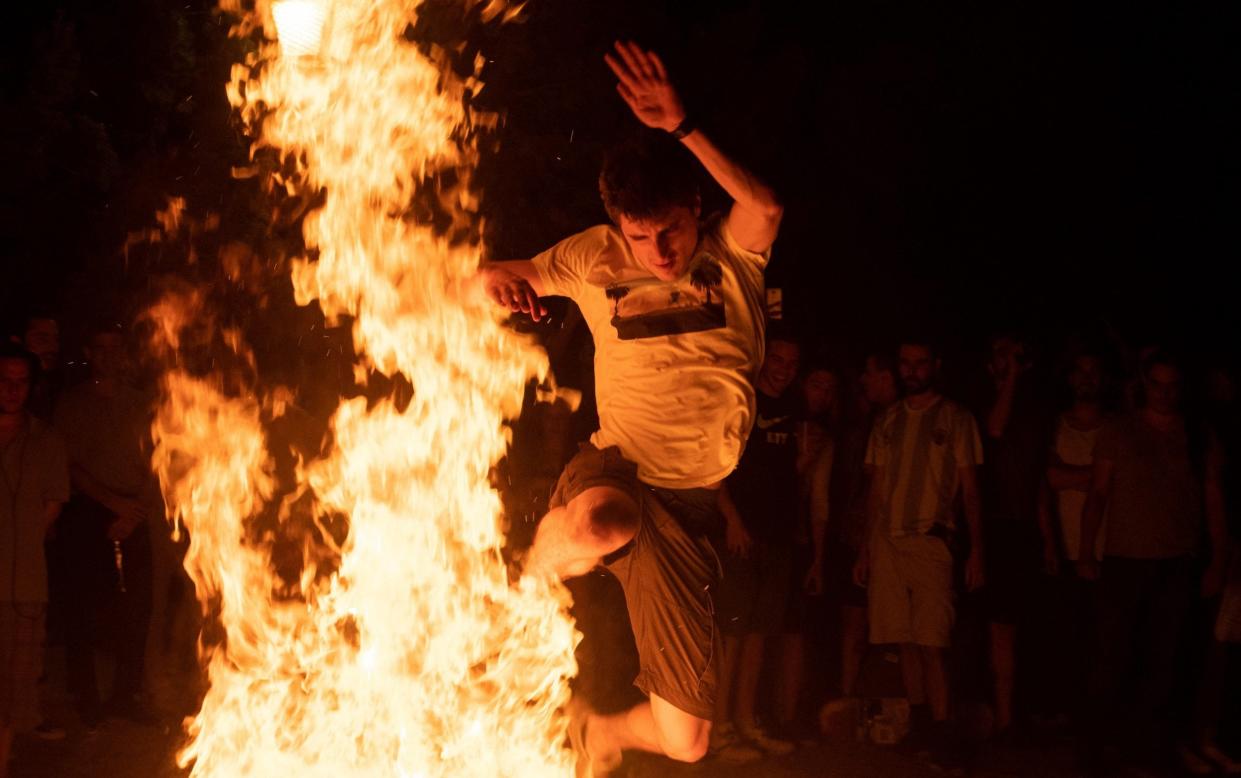Sacred Mysteries: Fireworks all night for St John the Baptist

I feared I might not get much sleep on Sunday night. You’d think I’d have learnt by now, but I painted myself into the corner of having to stay in Barcelona, and knew the city would erupt into noise, loud music and fireworks all night.
The last time I was caught like this was on my way back from Tarragona, which had already spent 10 days in September celebrating its patron St Thecla with human pyramids, amplified music, street fireworks, thunderflashes and dragons.
Foolishly expecting peace in Barcelona that September night, I was ambushed by La Mercè, the city’s fiesta for its patron, Our Lady of Mercy. Into the night, drum parades and dragons spraying crowds with Roman candles punctuated the rock music.
I am not complaining. Spain is meant to be foreign, and it is given to noisiness. Actually, St John’s Day is not a public holiday in Spain, but it is in Catalonia, which takes him for a patron. The eve counts for public riotousness, just as England once celebrated Midsummer Night on that day, it being nearer the solstice in former centuries.
St John the Baptist has two days in the Church calendar. Most saints are commemorated on the day of their death, or entry into heaven, the dies natalis in that sense, their birth to a new life. St John the Baptist is unusual in having his earthly birthday celebrated too, on June 24.
He was held to have been made holy, christened as it were before birth, when his mother Elisabeth was visited by her cousin Mary, who was already pregnant with Jesus. “When Elisabeth heard the salutation of Mary, the babe leaped in her womb; and Elisabeth was filled with the Holy Ghost and she spake out with a loud voice, and said, Blessed art thou among women, and blessed is the fruit of thy womb.”
John the Baptist has the structural role of forerunner to Jesus. The angel told his father Zacharias after the child’s conception: “He shall be filled with the Holy Ghost, even from his mother’s womb. And many of the children of Israel shall he turn to the Lord their God. And he shall go before him in the spirit and power of Elias.” This picks up the prophet Malachi’s words: “Behold, I will send you Elijah the prophet before the coming of the great and dreadful day of the Lord.”
The baptism John gives to Jesus when both are grown up is not to change Jesus but to recognise him publicly as “the Lamb of God”, the lamb having a sacrificial function, as at Passover.
The baptism of Jesus here is a foreshadowing of the bloody baptism of his death. That is what Jesus refers to when he asks James and John whether they have the strength to “be baptised with the baptism that I am baptised with”.
The part of the Mass called the Agnus Dei (familiar from its musical setting by great composers from Palestrina to Vaughan Williams) daily takes up John the Baptist’s words “the Lamb of God, who takes away the sin of the world” and addresses them to Christ at the moment in the liturgy just before Communion.
The witness given by John at the Baptism of Jesus (when a voice from heaven is heard from the Father and the form of a dove stands for the Holy Spirit) is part of the epiphany of Jesus, or the theophany, the showing to the world of Jesus as God, and the revelation of God as the Trinity. It is marked by a feast of the Lord soon after the Epiphany, 12 days after Christmas. John’s witness is confirmed by his own martyrdom, marked by its own feast day on August 29.
How much of all this comes to mind in the noise of St John’s Eve in Barcelona, I don’t know. But on the holiday afterwards there is welcome quiet for that.


